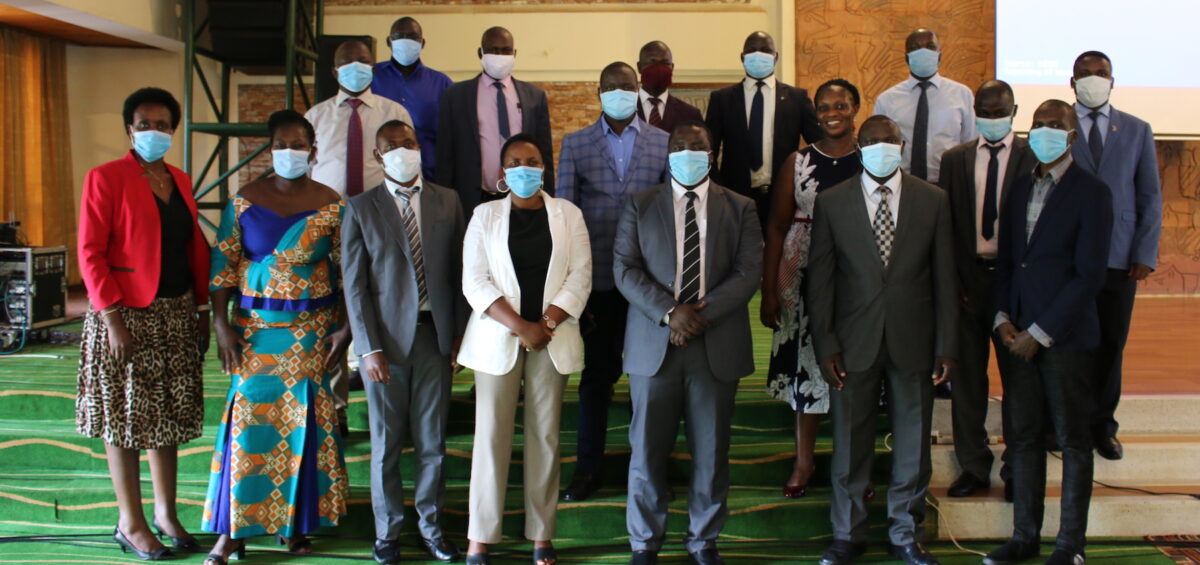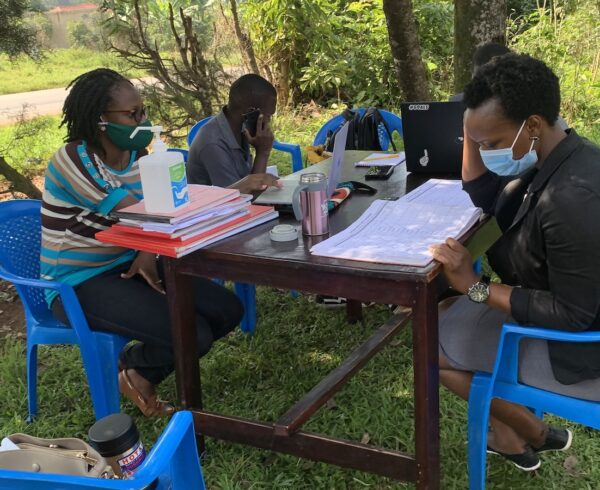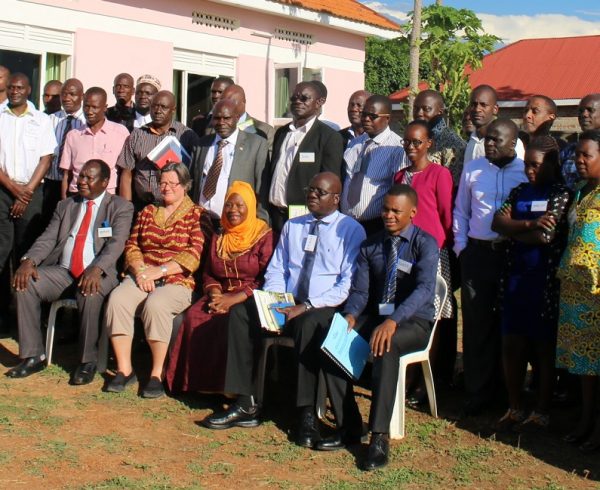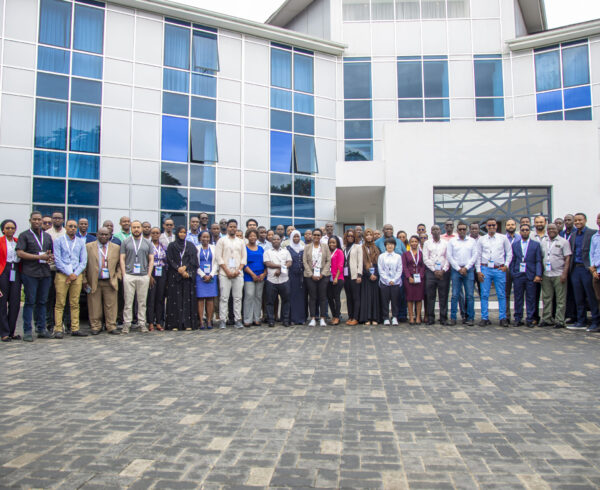Makerere University School of Public Health’s Monitoring and Technical Support Program graduated its 3rd Governance, Leadership and Management Fellowship Cohort in a colourful ceremony held at the Gold Course Hotel on 8th April 2021. The Nine-Month Fellowship targeted one member of the District Health Teams from each district like District Health Officers (DHO), HIV focal person and Health facility in-charges.
The 3rd cohort was made of 39 fellows of the 105 of the total number of graduands that have benefited from the training. The training required the Fellows to attend 25% of the program through a face-to-face interaction with facilitators from METS and MoH. This was conducted from September to October 2019. See Video
The rest of the program was designed to be implemented in the Fellows’ routine day-to-day activities in their respective districts.
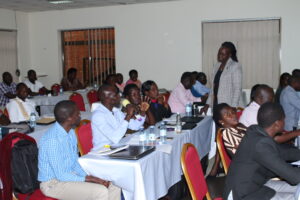
The Fellowship is jointly implemented with the Ministry of Health where technical staff are facilitators and mentors with support from the Centers for Disease Control (CDC). As part of the trainings, the Fellows were expected to design and implement projects aimed at addressing gaps in GLM affecting delivery of quality services.
The graduation doubled as a dissemination ceremony where 13 presentations from selected districts were made to all stakeholders. These districts included Adjumani, Moyo, Packwach, Koboko, Nebbi, Yumbe, Zombo, Maracha, Kalungu, Kyotera, Kakumiro, Kagadi and Bunyangabu
Notable testimonies included improved performance by districts whose DHT members were participating in the fellowship; Nebbi district moved from number 18 to 2 in the league table, while Maracha from number 40 to 9.
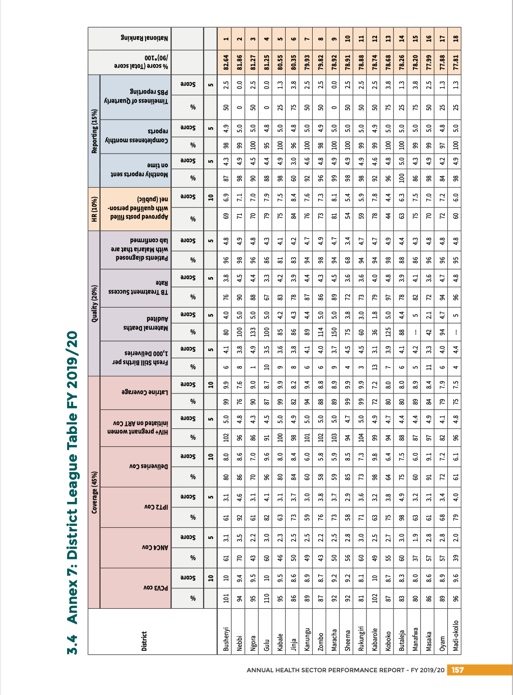

Key highlights from the ceremony included the following.
- There is a need to implement the GLM program to cover lower health facilities.
- The pool of the 108 METS-GLM Fellows could be used in this exercise.
- The COVID-19 pandemic erased some of the gains of the GLM projects, especially for TB. COVID-19, therefore, poses a major threat to the delivery of health services
- Community engagements like community dialogue meetings enabled health providers to deliver HIV/TB services in a more patient responsive/centered manner like differentiated adult and adolescent clinics.
- Fellows recommended that GLM activities be included in district work plans like GLM mentorship, tracking of indicators on GLM.
- Regional Implementing Partners e.g. IDI and Baylor-Uganda were very helpful in implementing the projects designed by the GLM fellows.
- Community structures/systems e.g. VHTs, HIV peers, were very helpful in tracking and returning HIV patients lost to follow-up.
- Continuous Quality Improvement (CQI) is an effective strategy for improving the performance of the health sector.
- The GLM skills that were imparted to the Fellows were used to confront a range of crises (problems) beyond their projects like low staffing levels in Kakumiiro district (45%), shortage of medical commodities, COVID-19, etc
- All the districts formulated sustainability plans including the assignment of GLM focal points at the district plans to re-tool frontline health providers in GLM, among others.
- Many of the interventions resulted in rapid improvement against the selected HIV indicators. When the interventions were combined with targeted support supervision, the improvements were sustained beyond the project periods.
Rose Baryamutuma the Coordinator of Health Systems Strengthening at METS thanked the fellows for their quality reports and for having accounted for the money that was given to them. She hoped that even though this was the last medium-term training, shorter fellowships were to be considered because the demand was too big to stop it entirely.
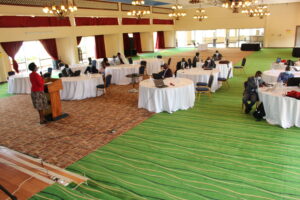
Charity Kyomugisha the Deputy Program Manager at METS urged the Fellows to be the change agents in mint and practice. She added, “….take the gospel that you have gotten to others so that we can share more knowledge. We have worked through the actual issues that happen at the ground and I believe we are seeing results on league tables especially in the districts that have per taken in this fellowship we wish you the best on this road of transformation
Professor Rhoda Wanyenze the Principal Investigator METS and Dean School of Public Health noted “Innovation and creativity is important in the service delivery process, so interventions are necessary. Challenges create opportunities and the the COVID-19 response should give us opportunity to shine our torch in the areas of improvement.”
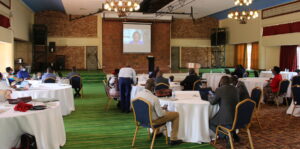
She further pointed out that from all aspects of the system, leadership was the most crucial because it moved the system therefore the top needed experienced and equipped people and this is what the Fellowship was delivering.
She urged the Fellows to take responsibility and move what was necessary to make better with the limited resources they might have on ground. As well as provide feedback to better the program which had since evolved basing on previous assessments from various stakeholders.

